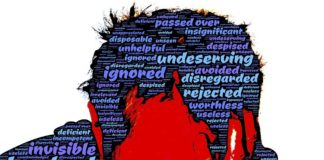Tag: medical model
“All Real Living Is Meeting”: Brent Robbins on Love, Death, and...
Psychologist and existential thinker Brent Robbins reflects on a lifetime of work, the limits of psychiatric diagnosis, and what facing mortality has taught him about joy and human connection.
One Person’s Journey from Celebrity Medical Model Advocate to Skeptic: An...
Rose Cartwright is a screenwriter and the author of Pure, a hugely successful memoir which was then turned into a series for Channel Four....
Dr. Pies: Still Going Wrong
In his attacks against the British Psychological Society's report "Understanding Depression," Dr. Pies falls into his own trap: "There are none so blind as those who will not see."
Insane Medicine, Chapter 2: The Scientism of Psychiatry (Part 1)
Wherever you find mental health services to have expanded, you find a parallel increase in the numbers who have been classed as disabled due to a mental health disorder.
How Little We Really Know About Psychiatric Drugs
Joanna Moncrieff reflects on what has and has not changed in the field of psychiatric drug treatment in the years between the first and newly published second edition of the Straight Talking Introduction to Psychiatric Drugs.
You’ve Got to Be Crazy to Go to a Psychiatrist
To those who say that major scientific/medical advances since 1975 have made going to a biological psychiatrist a rational choice, I say: What advances?
45 years have passed: Is any psychiatric “diagnosis” now verified by lab test, x-ray, or physical exam finding?
UN Special Rapporteur Dainius Pūras: Biomedical Approach “Still Has an Important...
In Pūras' new UN report, his use of biomedical language seems at odds with his message to move beyond the medicalization of distress.
Behavioural Geneticist Robert Plomin: “There Are No Disorders, There Are Just...
It is encouraging to hear leading scientists such as Plomin acknowledge that psychiatric diagnoses are fundamentally arbitrary and that the idea of a “cure” does not make sense with regards to psychological issues.
A Tale of Two Paradigms
Two recent mental health reports from Oregon are steeped in the medical model, written by "experts" without lived experience and sponsored by the pharmaceutical industry.
Explaining Depression Biologically Increases Prognostic Pessimism
Psychoeducation that explains depression in biological terms increases prognostic pessimism, perceived stability of depression, and openness to psychiatric medication.
Psychosocially Oriented Psychologists Struggle Against the Medical Model
Interviews with psychosocially oriented psychologists demonstrate their experiences of discomfort with the hegemony of the medical model in their place of work and the conflicts that arise when they attempt to provide alternatives.
Researchers Recommend Diagnosing Social Adversity Rather than Individual Disorders
Already-existing ICD codes provide a diagnostic alternative to biomedical models of health by contextualizing suffering within psychosocial conditions, yet these codes are underutilized.
Psychosocial Explanations of Psychosis Reduce Stigma, Study Finds
A review of mental health anti-stigma campaigns finds psychosocial models are effective in reducing stigma, while biogenetic models often worsen attitudes.
Depression, Stigma, and our Toxic Culture
From Medium: Often after the suicide of a public figure, there is an increase in articles published attempting to destigmatize depression by categorizing it as...
Talking Madness With Robert Whitaker
On Friday, June 9th, Robert Whitaker participated in a discussion with Lois Holzman about psychiatry, the medicalization of distress, and alternative practices. Click here to...
Against the Biomedical Model of Mental Illness
From Invisible Illness: The biomedical model of mental illness is a reductionist paradigm that focuses excessively on locating biomarkers and neural correlates of emotional distress at...
Researchers Push to ID Anxiety and Depression at Birth
"Factors such as genetics, environment, and experiences all have an influence on a person's likelihood of exhibiting signs of mental illness, but the study,...
Evolution or Revolution? Why Western Psychiatry Won’t Change by Incremental Steps
...but how realistic is it to expect that the biological skew of Western psychiatry can be sustainably changed one small step at a time?
Who Will Guard the Guardians of Psychiatry?
The assertion that the so-called antidepressants are being over-prescribed implies that there is a correct and appropriate level of prescribing and that depression is a chronic illness (just like diabetes). It has been an integral part of psychiatry's message that although depression might have been triggered by an external event, it is essentially an illness residing within the person's neurochemistry. The issue is not whether people should or shouldn't take pills. The issue is psychiatry pushing these dangerous serotonin-disruptive chemicals on people, under the pretense that they have an illness.
Unhelpful Utterances: 6 Comments We Should No Longer Hear From Mental...
Professionals are paid to share their wisdom with those who are, typically, less informed. But, when dealing with mental health professionals in the psychiatric arena, it is wise to retain a degree of skepticism about the words spoken by the doctors and nurses commissioned to help reduce human misery and suffering.
The Psychiatry Sandcastle Continues to Crumble
Psychiatry would long since have gone the way of phrenology and mesmerism but for the financial support it receives from the pharmaceutical industry. But the truth has a way of trickling out. Here are five recent stories that buck the psychiatry-friendly stance that has characterized the mainstream media for at least the past 50 years.
The Social Consequences of a Diagnosis on the Autism Spectrum
It’s time to change how we think about and relate to people whose makeup is or appears to be different from the norm. Currently, the dominant way in research, practice and the general public is to think of what’s different—let’s say a biological or neurological difference—as the source of disability and difficulty, and to relate to and treat (in various ways) that biological or neurological difference. But there’s another way to go, and more and more researchers and practitioners are taking it.
The Mental Health Channel & Beyond: What Does it Really Mean...
How are we going to get anywhere at all if people believe that speaking to alternatives just means occasionally putting something out there that isn’t about psychiatric drugs? Assuming that the Mental Health Channel folks genuinely believe they’re offering a product that’s ‘well-rounded,’ how do we even get to a point where they understand why it’s not, and can make a well-reasoned decision about where to go from there? Yes, it’s about the drugs. But, in some ways, no, it’s not at all about them. It’s about the damage we do by convincing people that there’s no other choice than to take the drugs because of a ‘chemical imbalance’ or ‘chronic brain disease’ that, just like cancer, will only get worse if it goes untreated. It's about the inescapable nature of the boxes people put us in (even some of those boxes not filled up with pills).
“Why We Need to Abandon the Disease-Model of Mental Health Care”
In a guest blog for the Scientific American, Peter Kinderman takes on the “harmful myth” that our more distressing emotions can best be understood as symptoms of physical illnesses. “Our present approach to helping vulnerable people in acute emotional distress is severely hampered by old-fashioned, inhumane and fundamentally unscientific ideas about the nature and origins of mental health problems.”
“Psychiatry’s Mind-Brain Problem”
A New York Times Op-Ed by Cornell psychiatry professor George Makari connects the surprise over the results of the widely-covered RAISE study to American psychiatry’s shift toward pharmacology and the oversimplification of disorders as brain diseases.



























